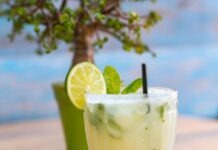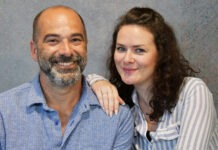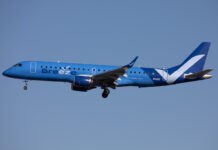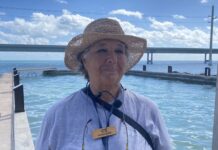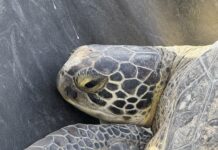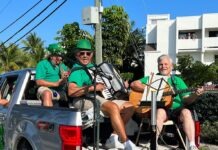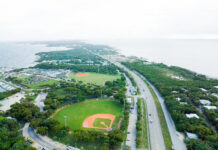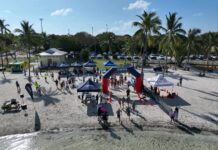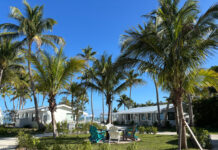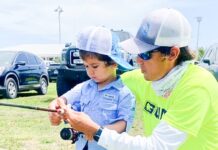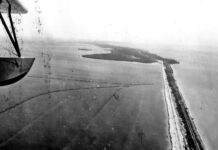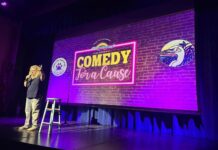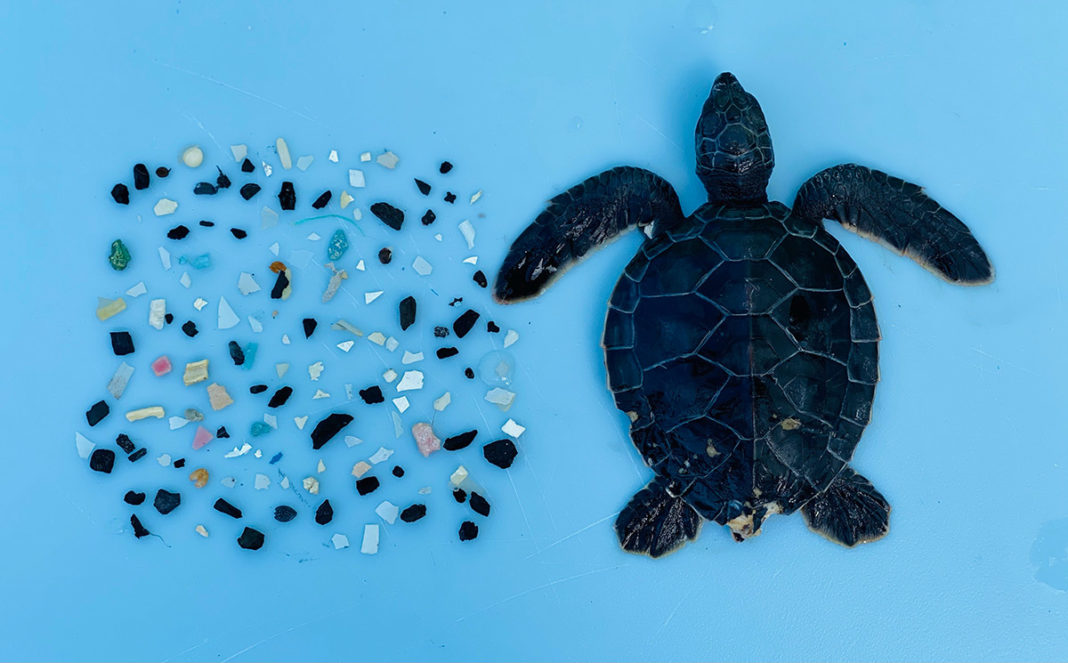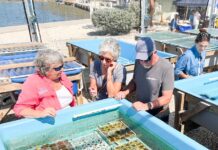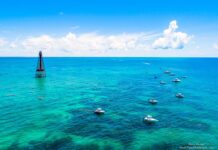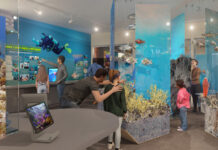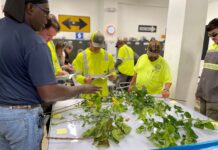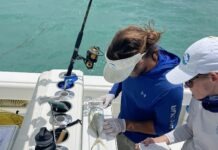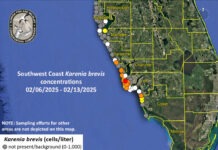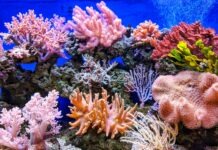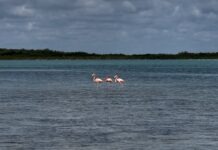A baby green sea turtle “washed up” on Coco Plum Beach in Marathon due to Tropical Storm Eta. Days later, when “Lil’ Buddy” died, a necropsy revealed a likely reason for her demise – plastic pollution.
James and Debora Hall found the green sea turtle post-hatchling in some weeds and debris near the water’s edge on Coco Plum Beach and named her. After her rescue and transport to the Turtle Hospital in Marathon, she remained in “guarded condition.”
Turtle Hospital manager Bette Zirkelbach noted that there are no green sea turtle nesting sites in the Florida Keys, so “this little one blew in from other islands or another part of Florida,” probably due to heavy winds and currents from Eta. Post-hatchling “washbacks” are baby turtles that hatched out, successfully left their nesting beaches and started to feed in the open ocean, but who are then “washed back” to shore due to winds, currents and/or ill health.
The Florida Keys are home to roughly 100 loggerhead sea turtle nests and a handful of hawksbill sea turtle nests, Zirkelbach said. The closest green sea turtle nesting grounds are in the Marquesas Keys and the Dry Tortugas, so the discovery of such a small green sea turtle is rather unlikely.
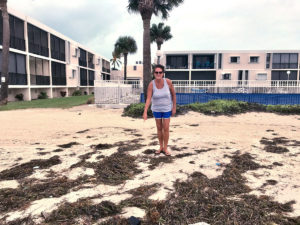
Unfortunately, Lil’ Buddy passed away overnight at the Turtle Hospital. 150 pieces of plastic and trash were found in her gut, filling her stomach and blocking her intestines so she was unable to eat enough food or defecate.
“Post-hatchling sea turtles are young and need to feed and grow rapidly which puts them particularly at risk from the harmful consequences of ingesting plastics,” Zirkelbach explained. “Sadly, Lil’ Buddy fed on so many plastics, there was no chance for her survival.”
Plastics do not dissolve and continue to break up into smaller pieces, which get caught in and travel with the same ocean currents and sargassum weed that sea turtles live in for the first couple of years of their lives, she continued. Hatchlings mistake these microplastics for invertebrate pray that they like to feed on. Older sea turtles commonly mistake floating plastic bags and balloons for their preferred jellyfish prey, she added.
“Lil’ Buddy’s story is becoming all too common with post-hatchling sea turtles and other wildlife,” Zirkelbach warned. “We have to do better. We have to break our addiction and find alternatives to plastic.”
If you see a sea turtle in distress in the Florida Keys, call the Turtle Hospital’s 24-hour stranding hotline at 305-481-7669.
